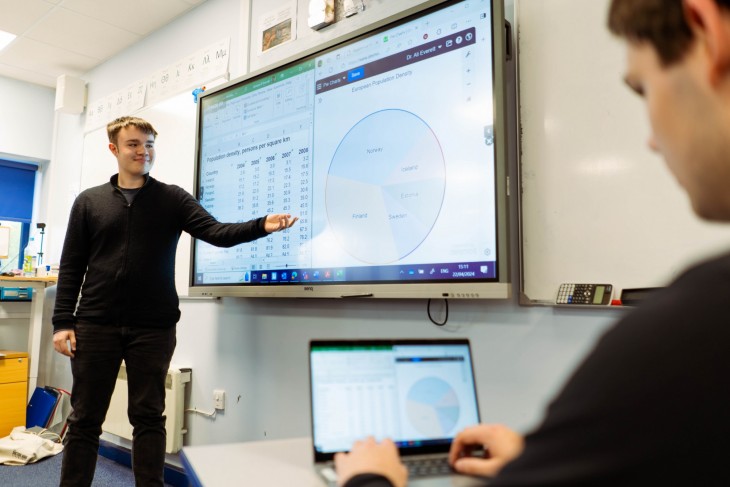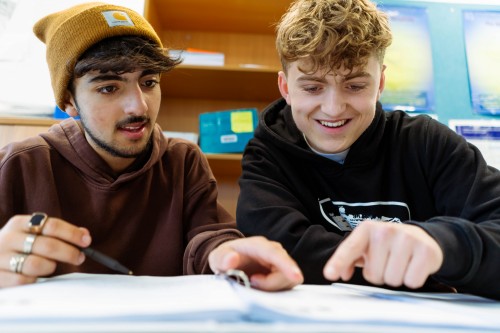Hereford Sixth Form College
Statistics
Find a course
Statistics A Level
A Level Statistics focuses on the interpretation of the numbers, rather than how to calculate them, providing an insight into real world situations with no definitive answer.
This Statistics course is designed primarily for candidates who wish to study the applications of statistical techniques to biology, business studies, economics, management and the humanities.
The emphasis in Statistics is on uses of mathematics, rather than the logic, style and rigour of Pure Mathematics. This course is not suitable for students who will be studying Mathematics or certain types of Engineering at university.

Statistics
What does the course involve?
In order to gain an understanding of the world around us, we need to be able to compare between what has been observed and what is expected. Almost every job in the world requires a degree of data collection and analysis, followed up by the interpretation of the numerical evidence: this is the nature of Statistics.
The course builds on descriptive statistics such as finding averages and summarsing data. This leads onto inferential statistics where you test whether an observed result is significantly different from what might be expected. The role of technology is heavily relied on and the application to a wide range of situations is explored.

Statistics
Paper 1: Data and Probability
Using data collection, handling and analysis to determine probabilities of events occuring.
Paper 2: Statistical Inference
Testing hypotheses about populations based on statistics calculated from samples.
Paper 3: Statistics in Practice
Applying statistical enquiry skills to real-world situations.
Each paper is equally weighted.
You will have a test at the end of each topic to ensure that you have understood the concepts. Statistics is a cumulative subject, so if you have not understood one idea, you will not understand those that follow on.
Statistics workshops are held each week and teachers are always on hand to answer questions if there is anything that you need more help with.
You will need to have a good standard of skill at arithmetic, for example multiplying decimals, and some skill at algebra, for example solving simultaneous equations. It is also essential to be good at reading with understanding, so you can pick out the essential facts and interpret calculations in context.
Trips
There are no compulsory trips but occasionally there are opportunities for visits or lectures by visiting speakers. There will be an element of primary data collection and research required.
What can you do after the course?
Many students have found A Level Statistics valuable when taking degrees in Psychology, Business Studies, Geography, Biology and Anthropology. You develop the ability to follow complicated formulae and instructions accurately, and this is a very transferable skill in a wide range of mathematical and non-mathematical contexts.
Almost every career will require the analysis of data.